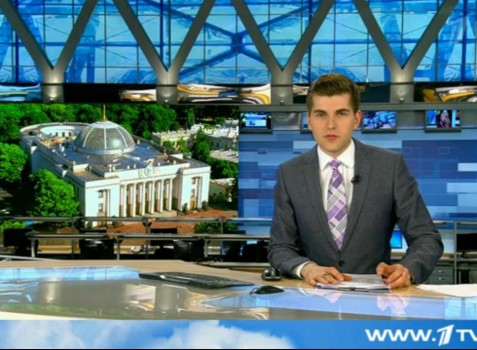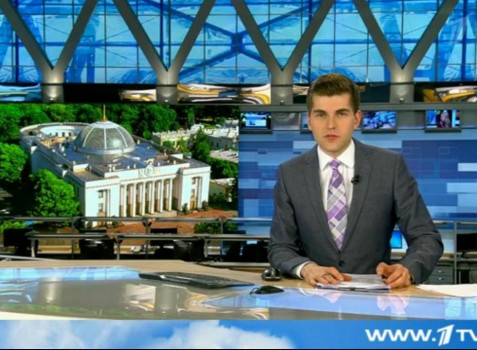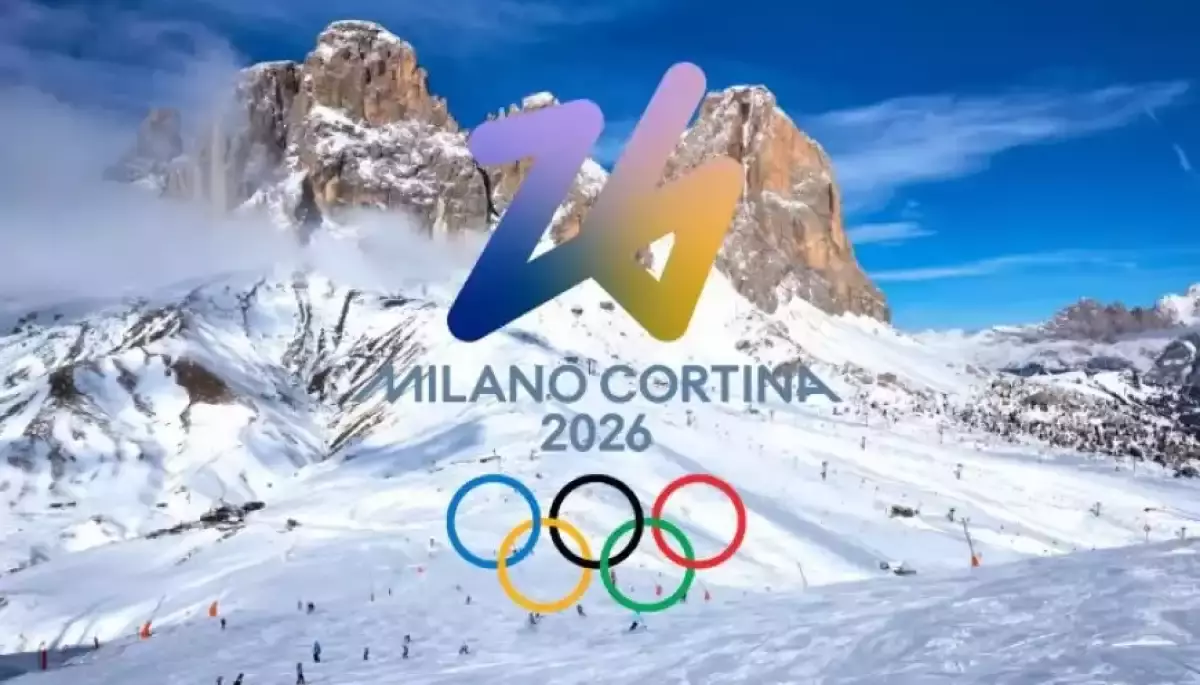
Lot of fuss about propaganda


The day after voting in Ukraine the correspondent of Dozhd channel (Rain) asked the passersby in Moscow streets about their opinion of the election in the neighboring country. Remarkably, almost all of them, except for two respondents, said that they were not interested in this event, a man was harsh to express his concern “about creation of a fascist state”, and a senior lady disapproved the behavior of Ukrainians as “they contest too much… against us”.
We are far from the idea that such a distribution of opinions is representative, any expert understands that propaganda machine cannot be fed eternally: the mass consciousness will be blocked by psychological fatigue sooner or later.
The coverage of Ukrainian question by central Russian TV-channels and printed media was somewhat strange two weeks before the 26-October election. No, there have been no changes in terms of the content. They diligently – though without any fancy ideas – worked according to the interpretation: “the election in Ukraine is the neo-Nazi shortgun farce”.
The fact that both the Russian President and the Kremlin chief of staff declared openly the readiness to accept the election – and this was actually proven thereafter – did not confuse the ordinary propaganda transmitters at all. It seems to be logic: once you get involved into propaganda, you lose the journalist skills. The ability to analyze events vanishes having become useless, the individual author’s style is not necessary any longer. What’s the point, if one may “earn shekel” just for juggling of the soviet agitprop clichés?
The Russian TV people made up fake news without any constraint, one would say, in broad-brush terms. The adoption of the lustration law by Ukrainian parliament has become a handy occasion, in Russian exposition it gained almost apocalyptic traits. There is no doubt, for them even a possibility of some real form of liability of the establishment is beyond imaginable.
Similarly, if in the Ukrainian reality the “garbage lustration” is merely a couple of excessive acts so far, this turns out to be a clone of German Kristallnacht in Russian TV’s interpretation.
Russia, Vesti, 17.10.2014, 21:15
“ ‘Pravyi Sektor’ continues pre-election mopping-ups. By Olga Mescheriakova.
… Many of Kyiv politicians are in no haste to abide the law. Unlike the lustration law that they rushed to implement surpassing each other’s cruelty and sophistication.
The red flag is hobnailed. But this is not enough for masked goons. Thebannerissetonfire. Andburntdown. Here, inUkraine, theredbannerhasgainedanewmeaning. It’s not only a symbol of communist party, ideology and past epoch. It is a symbol of resistance to the ones like these. Masked and holding fires. Ready to burn and hobnail.
Why these masked from ‘Pravyi Sektor’ abuse everything that is beyond their Nazi ideology. And everybody who is ready to repulse…
So many of those battered, dumped into waste bins, this is how the people declare their will. Every time new evidences of crimes are posted on the Internet with no fear. And every time the same copy-answer of law-enforcement authorities: delinquents are not found.
This waste orgy is a part of large Kyiv show called lustration. The people’s wrath of a certain part of population knowingly guided by Kyiv’s high political engineers.”
The revelatory ardor is so strong that the authors fancily pick up the candidate of pro-Russian “Opposition Block”, ex-chairman of Naftogaz Evhenii Bakulin as live examples of election bribery.
And the impression should be the same: the election in Ukraine is the farce foreshadowing the rapid wreck of ‘failed state’.
Channel One, News, 21.10.2014, 09:00
“Ukrainian media write about the attempts to bribe voters in the pre-election campaign.
Kyiv is occupied with the preparation of early parliamentary election to be held this Sunday. And methods used by the candidates are far from being honest.
As local media report referring to the Committee of Voters of Ukraine the electorate is being bribed actively in many of the regions. The vote offer price ranges from 50 to 5oo UAH. The lowest prices are in Kirovograd, Kharkiv and Mykolaiv oblasts, and in Cherkasy the rates are the highest.
Some persons, like Naftogaz ex-chairman Evhenii Bakulin, founder of “Opposition Block”, dishes out money in his campaign office. The pensioners were receiving 200 UAH each, and this very moment the political opponents of Bakulin burst into mixing-up.
Another simple way to get the support of Ukraine voter – actively used by the candidates as well – is to give a money gift certificate or a modest food package.”
Russia, Vesti, 21.10.2014, 21:17, http://www.vesti.ru/news/
“Election a la Ukrainian: vote price and grenade for candidate. By Aleksandr Balitskiy.
… Main news are associated with the forthcoming election. The voting is on October 26, and the political environment in Ukraine reached rock bottom.
By now the election a la Ukrainian means also a shot in the back and a hand grenade on the floor. ThenightattemptonthedeputycandidateofYatseniuk’sparty. The news of attempt on the life of Volodymyr Borysenko, 27-year old lawyer from Boryspil town, the electors have never heard about him before, moves back the communications about the gas negotiations in Brussels.
News teams are watching the hospital where the candidate was delivered by EMS; the candidate got away with pain shock: the bullet stuck in the bullet-proof vest.
“The condition of Volodymyr Borysenko is moderately severe,” a journalist at the hospital entrance explains.”
For more dramatic effect, the Russia channel aired Alena Berezovskaya with respective “comment”. There may be somebody who remembers a subtle blonde seen on a number of occasions with the former “guarantor” Viktor Yanukovych-senior, her friend according to Berezovskaya. Apparently, this friendship is a ground for the Russian state-owned channel to entrust her with a holy cause of “hot denouncement” of new Ukrainian authority. And the election, of course.
At the same time one can appreciate the quality of “forecasts” of Alena Berezovskaya (or at least of those who write such texts), for example, listen to the complaints alleging that “Opposition Block” and “Sylna Ukraina” (“Strong Ukraine”) “are kept from the TV-air”, and remember the faces of Nestor Shufrych, Sergii Tigipko and Valeriy Khoroshkovskyi cloying the viewers of popular Ukrainian political talk-shows the last six weeks.
Russia, Vesti, 22.10.2014, 20:42, http://www.vesti.ru/news/
“Wartime Election. Comment by Alena Berezovskaya.
Ukraine is on the brink of election. However, the election in the civil war is absurd. When thousands of people die, dozens of thousands are at the front-line, seven millions are across front-line, when the illegal armed forces like “Pravyi Sektor”, “Self-Defense of Maidan”, gunmen of “Svoboda” (‘Freedom’), battalions of Kolomoiskiy lynch by means of battering and humiliation of deputy candidates all over the country, the free declaration of will of Ukrainian people is impossible.
Many of Ukrainian politicians note that this election is the new “battle of oligarchic clans for re-distribution of Ukraine’s assets” covering the whole country.
The election process follows the law of forest: the representatives of these parties are trying to annihilate the other parties. Some radical elements literally chase the deputy candidates of rival parties. And neither the Central Electoral Commission nor the law-enforcement agencies respond to this crude outrage.
The whole world watched the battery of deputy Nestor Shufrych in Odessa; he was running the “Opposition Block” pre-election campaign there. And this is not an isolated instance, there are hundreds of them.
According to MIA of Ukraine, as of today, they initiated 178 criminal proceedings related to violations during the pre-election campaign, including 71 voter bribe cases. The most popular agitation topic is the struggle with Russia and with so-called “terrorists” consisting of almost 10 million of people (these are Ukrainian South-East locals), and, by the way, without their votes Verkhovna Rada election is invalid under the current Constitution…
The majority of polls define “Block of Petro Poroshenko” as an unconditional leader that is going to get 25-30% of votes. Then we have three political forces with equal chances. The party of ex-companions of Tymoshenko — Yatseniuk and Turchynov – “People’s Front” (Narodnyi Front), Radical Party of odious Oleg Liashko and “Motherland” (Batkivschyna) of Yuliia Tymoshenko. These are the parties of war. Their pre-election platform is the war, the war until the victory over Donbas, the war until the Crimea is returned, the war with Russia. The lists of these parties contain the punitive battalion chiefs, ATO leaders. The Batkivschyna’s list is headed by the airwoman accused of murder of Russian journalists, tortures of a priest and slaughter of civilians.
Many of the candidates often make use of pseudo-patriotic feelings generated in the best traditions of Goebbels propaganda by Ukrainian media. Making profit of populism these parties may get 6-11% and have the highest probability to make part of the Verkhovna Rada. Among these three parties I would like to mark out the People’s Front that resorts to the administrative pressure, leverage…
The following candidates to enter the new parliament that most likely will form the opposition base are: Tigipko’s party “Sylna Ukraina” (Strong Ukraine), “Opposition Block” uniting the ex-members of “Party of Regions”, and Communist Party of Ukraine. Each of these parties may get 4-7% of votes. At least two of them must enter the parliament from party lists. Their main electorate is in the South-East of Ukraine. And after the separation of Crimea and Novorossia the number of their supporters has decreased significantly. Furthermore, the ‘new democrats’ that took over in Kyiv having used their influence almost barred the communists and ex-members of “Party of Regions” from the TV and radio air.”
But ‘revelations’ of a glossy anchorwoman are not the most dramatic ones. There are personages like Sergei Markov, a political scientist, who once was the deputy of State Duma, focused on ‘Ukrainian topic’ for years. Below we cite his ‘analysis’ of post-election power landscape in Ukrainian parliament – it does not need any comments:
“Komsomolskaya Pravda”, 25.10.2014
“Council of Punitive Action.
Tomorrow, October 26, Ukraine is electing a new parliament – Verkhovna Rada (Supreme Council). ‘KP’ turned to Sergei Markov, director of Political Research Institute, to have the explanation of power landscape.
Nationalists Ahead
— As a matter of fact, Ukraine is divided into two parts. The first one – nationalist and anti-Russian – has a wide range of choice. And for the democratic, international part it's Hobson's choice. I am talking not only about the geographical division: both Kyiv and Lviv have people believing that Ukraine should not feud with Russia but rather had good relations with Russia as well as with the West. But these people have no chances to participate in the election properly in Kharkiv, Odessa and Lviv.
Since their candidates – who are communists, <Party of Regions> — are battered, tossed into jail, have the houses burnt down. TheRada will have only a part of Ukraine represented – the nationalist one. And it is also divided into the party of war and the party of peace.
Party of War…
It is represented by several blocks, the first the most warlike union <‘People’s Front’>, it consists of those welcoming combat actions: Turchynov, Avakov, Yatseniuk and Parubii. They have chances to enter but not the highest ones. The second block is <Batkivschyna> of Yuliia Tymoshenko. Though people say she has a slim chance, I think that Tymoshenko will go over and enter the parliament. The war-supporting Radical Party of Oleg Liashko has the best chance, it is expected to take the second place in the Rada. The Liashko's rhetoric is very warlike but he acts at a show-business level, he can easily change his convictions and slogans.
… The chances are the party “Sylna Ukraina” headed by Sergii Tigipko will enter the Rada, Communist Party may also enter. It’s hard to say how many seats they can count on: polls do not give the actual state of things, under the terror people would rather not speak about their preferences.
How the Ukrainian Parliament is going to look like?
… I think this Rada will be scarcely legitimate. It will certainly approve the launch of new vigorous military action in Donbas. Poroshenko must create a coalition with radical Oleg Liashko. He has already offered Liashko the position of Rada speaker though the latter demands the prime-minister post. I think, Liashko is going to be a speaker, and a trade-off figure will be nominated for a post of prime-minister.”
In general, the last weeks’ analysis shows that in attempts to manipulate the “references to opinion shapers” the Russian propagandists have rotten significantly. Either the line of well-known people wishing to ruin their good names has become smaller or the principle “the more you get, the less you are concerned about the quality” has taken over.
Now the ‘experts’ proving the most absurd plots are played by absolutely marginal characters, heads of some semi-mythical ‘analytical’ structures with pretentious names. Our, apparently, former compatriots are among them as well working off with verve – as is often the case of traitors – the order of new masters. They do not deserve to be named.
By way of example, we’d like to mention one. The political talk-shows of ‘late Yanukovych’ era started featuring a ‘new’ expert Rostislav Ischenko. He followed strictly the pro-governmental gag orders but he had never been the only one, nothing special. And after February he disappeared. But not ‘real gone’. He came around mainly on minor pseudo-patriotic web-sites and even in “Izvestia” sometimes. But given the actual state of this media this cannot be called an achievement by any stretch of the imagination. Speaking of his texts you can hardly find more entrenched couch aggressor. Not a week goes by that you don't read another Ischenko’s article dissecting, capturing and, globally speaking, foredooming to failure his former motherland Ukraine.
And there was a time when he was employed by our diplomatic service and, apparently, was not above receiving the wage of Ukrainian civil servant. He even was an assistant of an ex-prime-minister and then of the minister of education Dmytro Tabachnyk. And this must explain a lot. Though, unlike his former subordinate, Tabachnyk has changed his tune and keeps his counsel. Clearly, he has got more ‘savings’ and does not need to toss about for penny perquisite.
We are not going to analyze those texts: the pseudo-analytical trash fans have Google, and the rest would rather save their sane mind.












